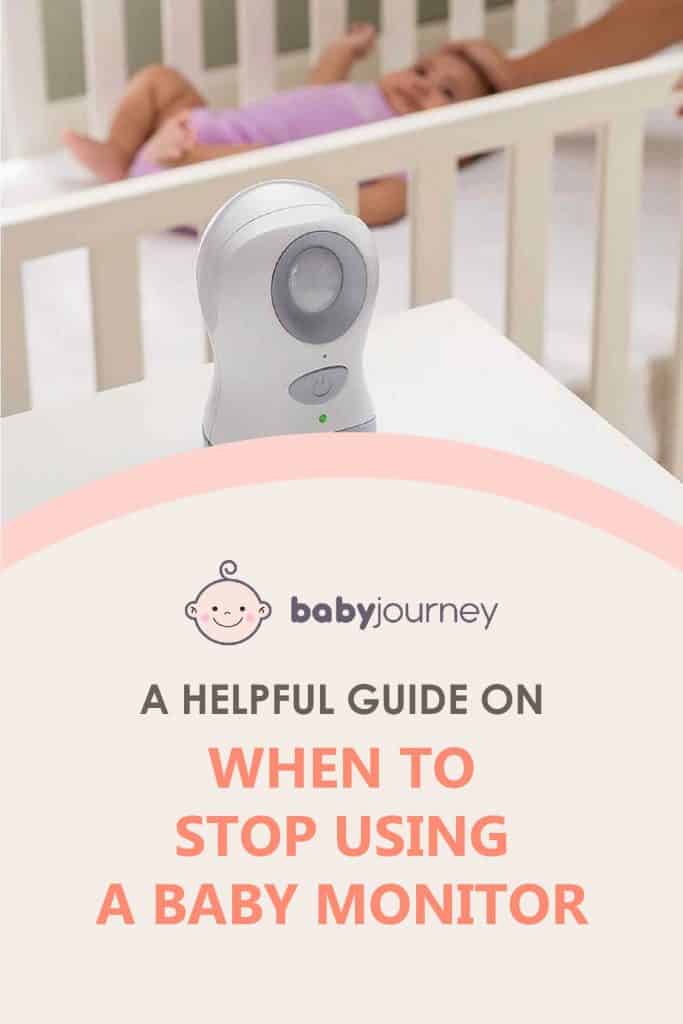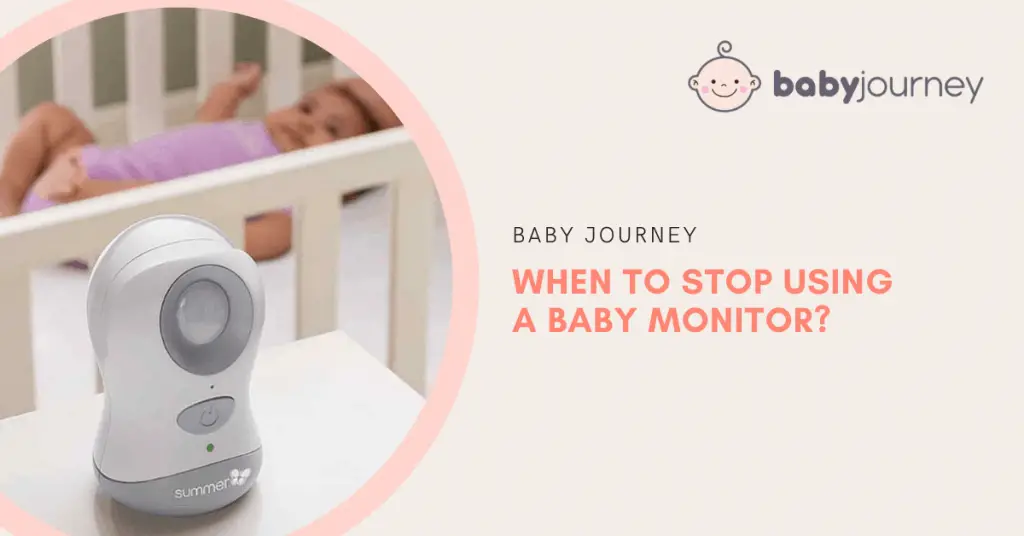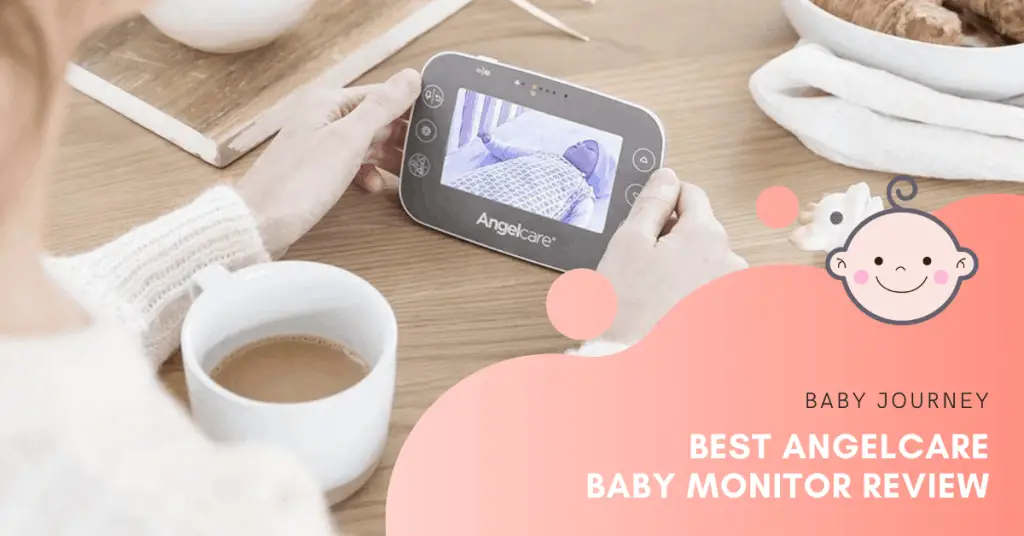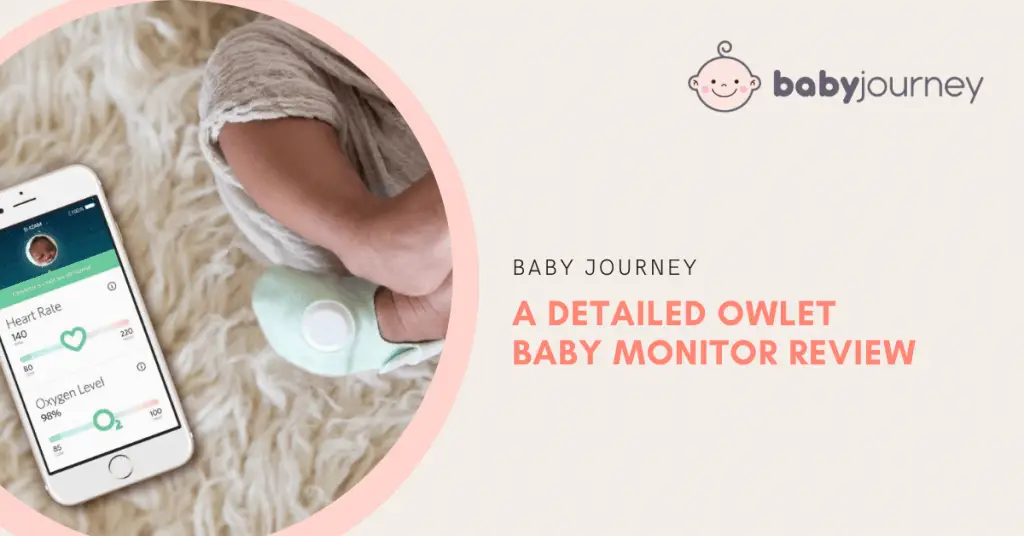Knowing When to Stop Using Your Baby Monitor
Though there is no definitive time as to when to stop using a baby monitor, most parents stop using a monitor when their child is 6 months to one year of age. However, baby monitors can still be useful.
A baby monitor is a vital piece of nursery equipment. Though it can provide peace of mind, it can also cause stress. It is normal to wonder when you can boot the baby monitor from your bedside table.
If you find yourself googling when to stop using baby monitor, then this article is for you!
For How Long is a Baby Monitor Useful?
It seems like every baby registry has a baby monitor, and for good reason. There are many benefits to a baby monitor.
The advantages are especially beneficial when your child is very young, and when they are first moved to their own bedroom.
First-time parents may wonder, do I need a baby monitor…and usually the answer is yes!
When your child is out of your sight, it is normal to worry about them. Whether they are playing or sleeping, most parents want to be able to check in on their child.
A baby monitor allows parents to see and hear their little one. Along with being in the know about your baby, there are other pros to baby monitor use.
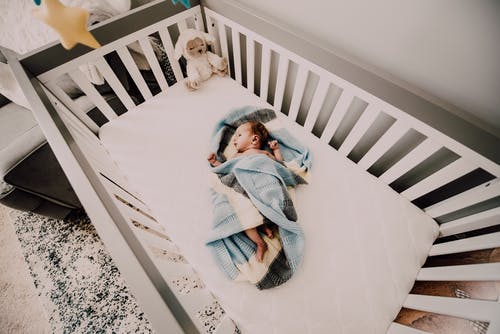
Pros of Using a Baby Monitor
- Easily check on your baby: Being able to easily check on your baby is perhaps the biggest benefit of a baby monitor. Monitors with audio and video enable parents to watch and listen to their child.
This can be helpful when you are trying to settle them for the night. You can watch and make sure that they are calming down and going to sleep without having to enter their bedroom.
- Baby trouble alerts: When your baby is asleep, a baby monitor can be used to alert you if your child wakes up. Baby monitors often have alerts and notifications that detect when your child is crying.
Should your baby’s room be down the hall from yours, or should you be a heavy sleeper, a baby monitor can provide you with peace of mind. If your child is distressed, the monitor will ensure you know about it.
- Better baby sleep tracking: Some baby monitors use data collection. They store this information in an activity log. Even if your baby monitor does not do this, when the monitor alerts you that your child is awake, you can make note of the time.
Whether the data is automatically gathered, or noted by you, baby monitors can help you track your child’s sleep. Knowing the habits of your little one will make it easier to create a routine and attain good sleep habits.
- Assistance with sleep training: Speaking of healthy sleep habits, a baby monitor can also assist with sleep training, which is also useful to new parents.
Many parents want their children to learn to self-soothe. You don’t want to rush into your baby’s room at the first whine, but instead give them time to try to put themselves back to sleep.
A monitor allows you to watch your child from a distance so you can give them time to practice self-soothing.
- Monitoring health issues: Advanced baby monitors use sensors and movement sensing pads to track your baby’s movements and breathing. These monitors can be a big help to new parents who are concerned with their child’s wellbeing. The monitor can notify you should anything occur. One example of such baby monitor is the Owlet baby monitor, which uses a smart sock technology.
- Free time for parents: A baby monitor also grants you a little free time apart from putting you at ease of your baby’s safety. Even if your child is awake, you can set them in their crib to play while you throw in a load of laundry or even just go to the bathroom.
The monitor lets you keep an eye and ear on them while you finish a few tasks. Monitors can even be helpful in watching older children play in their room or play area and don’t have to be used just for infants.
When to Stop Using Baby Monitor Though?
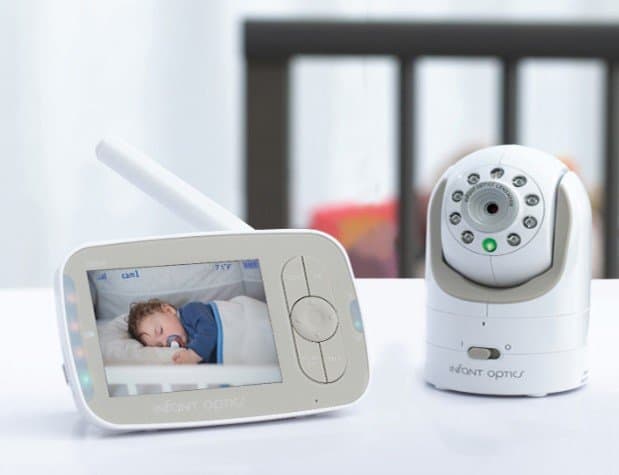
It is clear that baby monitors are very helpful, but they shouldn’t be used forever. Regarding what age to stop using baby monitor, most parents stop when their child is between 6 months and one year.
Some professionals recommend stopping using a monitor when your child begins consistently sleeping peacefully throughout the night. But it is a point of contention between parents.
Why should you care about when to stop using a baby monitor? Let’s discuss.
The effects of prolonged baby monitor use
While some argue that using a baby monitor until age two can be beneficial, others cite the negative effects of prolonged use. The ability to constantly watch your child can become too normal.
Keeping an eye on your little one 24/7 isn’t practical and the need to do so can create what some term as “helicopter parents”.
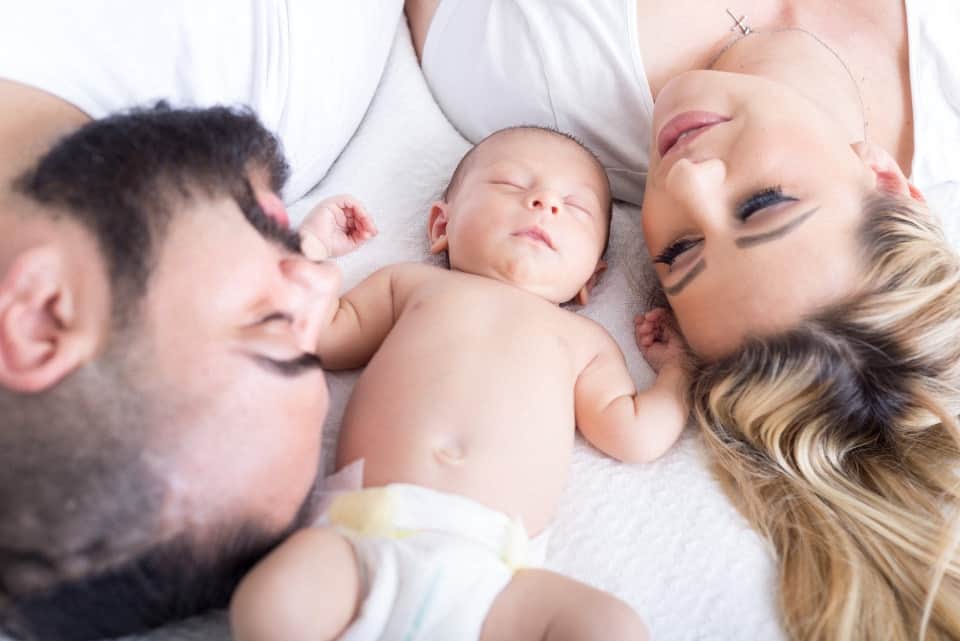
Relying too much on baby monitors
Being overly dependent on the device is one such characteristic. Some parents may feel the need to watch their children all of the time. This is true even if their little one is over a year old and left in a safe environment where you can easily hear them.
For example, if your child is safely in their playpen and you step into the next room to grab a cup of coffee, you probably don’t need to monitor them. However, prolonged use of the monitor can make some parents extremely leery of leaving their child alone off camera.
Possible anxiety development
If you ever find yourself feeling insecure without a baby monitor to watch over your kid, these feelings may translate to feelings of anxiety when not using the camera. This is especially true at night time and for those using smart monitors. Children can be noisy sleepers, but in most cases, children over the age of one do perfectly fine sleeping on their own each night.
For this reason, some recommend that when your child starts consistently sleeping through the night, you can forgo the camera. It may help you get a more peaceful night’s sleep. You won’t have to worry about missing an alert or being awoken by the slightest noise.
Unnecessary cost
Some baby monitors, especially those that pair with baby monitor apps, may require a subscription. Using your baby monitor beyond the recommended age will cost money and maybe an expense that isn’t really necessary.
Using your baby monitor beyond six months or a year may or may not prove to be helpful. Instead of just stopping the monitor use cold-turkey, you may want to slowly wean yourself off the monitor.
To do this, you can try turning the audio all the way down so you are only awoken if your baby is truly upset and not just grunting or rolling in their sleep. This can help you gain the confidence to stop using the baby monitor altogether when it is time.
Some Tips on How to Choose a Baby Monitor
Choosing a baby monitor doesn’t have to be hard. Just be mindful of these few considerations:
Type of monitor
There are different types of monitors available. The most common are hardware systems including audio-only and audio and video, and baby monitor apps.
A baby monitor app uses two phones or devices. It watches and listens to your child using the phone’s camera and microphone. Typically, the features of a baby monitor app are more limited than their hardware counterparts.
A hardware baby monitor system has components, or hardware, that you must purchase and install. In some cases, this can be a receiver and parent unit (audio only) or a camera and a parent unit.
These monitors can also have sensors or movement pads that provide extra peace of mind. You should choose the type depending on how many features you want and what level of monitoring you need.
Range
Wi-Fi baby monitors with apps generally don’t have a range because they use the wireless internet or data. Theoretically, you could watch your baby from anywhere. Hardware systems or the non-wifi monitors do have a range.
Typically, they can’t extend very far outside of your house due to having to transmit through walls and barriers. If you hope to use your monitor while you sit out on the deck or work in the garden, be cognizant of the range.
Alerts
Decide what level of monitoring you want and what alerts that will require. Do you only want to be notified when your baby cries by the audio feed? Or, do you want a no-movement detected alert?
Budget
Baby monitor prices span from affordable to costly. Hardware monitors can be purchased as a bundle that includes the camera and the parent unit. You can choose to purchase additional cameras and parent units.
Baby monitor apps are sometimes free, but most have a paid version. Some of these versions require a one-time fee while others have a monthly subscription.
Picking the right baby monitor for you should help your nights and days run a little smoother.
An Individualized Choice
Deciding when to stop using the baby monitor is an individualized decision that parents should make together. The typical age to stop using the monitor is between six months and one year. However, some use the monitor longer despite the possible negative effects.
Each family is different. You should make an informed decision that best suits you and your child. When did you stop using your baby monitor? Let us know in the comments below!
—
